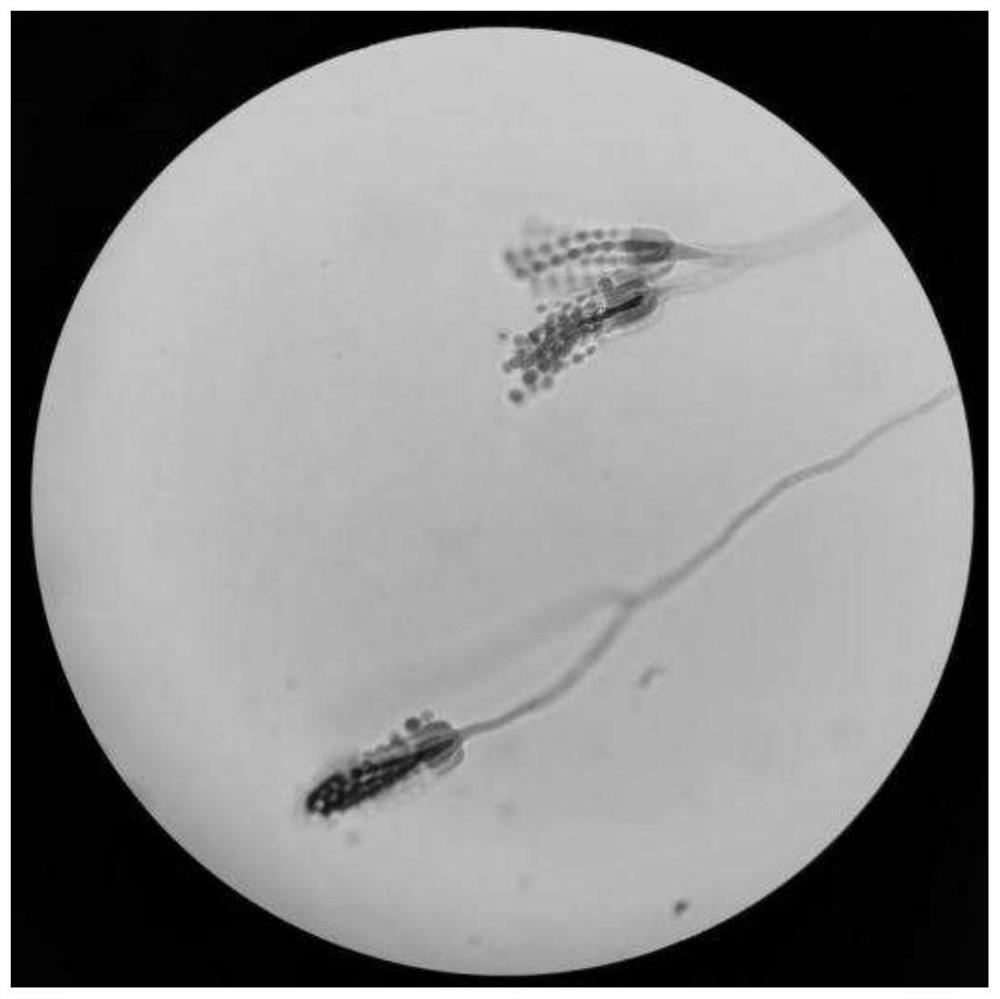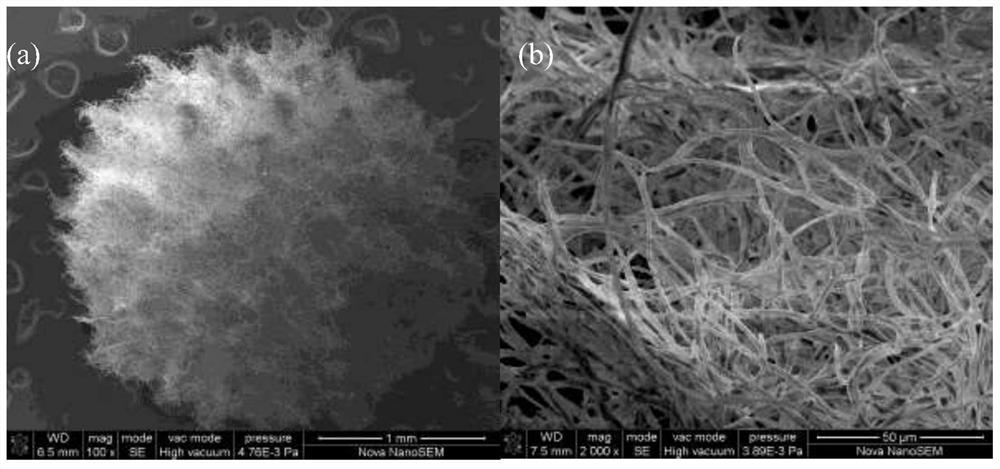Endophytic fungus and application thereof in dye pollutant treatment
A technology for pollutant treatment and endophytic fungi, applied in biological water/sewage treatment, water pollutants, microbial-based methods, etc., can solve problems such as difficult recycling, narrow degradation spectrum, and application limitations
- Summary
- Abstract
- Description
- Claims
- Application Information
AI Technical Summary
Problems solved by technology
Method used
Image
Examples
Embodiment 1
[0019] Example 1: Isolation and screening of endophytic fungi
[0020] Tissue imprinting method was used for separation and screening. The separation and screening method was as follows: take an appropriate amount of fresh blueberries, wash them, sterilize them in 75% ethanol on an ultra-clean workbench for 1 min, soak them in sterile water for 20 seconds, and then place them in 10% ethanol. Disinfect in sodium hypochlorite solution for 3 minutes, rinse with sterile water for 5 times, and apply the sterile water of the last rinse to the TWA solid separation medium to test whether the disinfection is thorough. Use sterile filter paper to blot the remaining liquid on the blueberries, then cut each blueberry into 3-4 pieces, and blot them on the TWA solid separation medium, and blot 5 pieces for each petri dish containing the TWA solid separation medium. The formula of TWA solid separation medium is 8g agar powder and 1000mL deionized water, and autoclaved at 121°C for 15min.
...
Embodiment 2
[0030] Embodiment 2: the application of endophytic fungus in dye pollutant treatment
[0031] Preparation method of liquid medium for endophytic fungi: Prepare PDB liquid medium containing 500mg / L concentration of neutral red, Congo red, amide black 10B, magenta, methyl red, naphthol green B and cadmium black T dyes respectively: Wash and peel the potatoes, weigh 100g and cut into slices, add 500mL of water, boil for about 30min, filter it into a 500mL Erlenmeyer flask with gauze, add 10g of glucose and 10g of agar, stir with a glass rod, and make up after cooling down Water to 500mL, divided into 100mL Erlenmeyer flasks, each Erlenmeyer flask is 30mL quantitatively, sealed with a rubber stopper, sterilized under high pressure at 121°C for 20 minutes, after the sterilization is completed, take out the Erlenmeyer flasks and transfer them to a clean bench when the temperature drops to 50°C After the temperature dropped to room temperature, take 1.5 mL of neutral red, Congo red, ...
PUM
 Login to View More
Login to View More Abstract
Description
Claims
Application Information
 Login to View More
Login to View More - R&D
- Intellectual Property
- Life Sciences
- Materials
- Tech Scout
- Unparalleled Data Quality
- Higher Quality Content
- 60% Fewer Hallucinations
Browse by: Latest US Patents, China's latest patents, Technical Efficacy Thesaurus, Application Domain, Technology Topic, Popular Technical Reports.
© 2025 PatSnap. All rights reserved.Legal|Privacy policy|Modern Slavery Act Transparency Statement|Sitemap|About US| Contact US: help@patsnap.com



